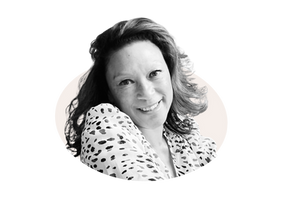From Immigrant to Startup Success: Marie Berry Exits Her Second Company
- Editorial

- Feb 19, 2024
- 3 min read
Updated: Jul 17, 2024
An Interview With Brooke Bohinc

Marie Berry, successful serial entrepreneur and angel investor, came to the U.S. in 2015 with the ambition to set up her own businesses. Her most recent startup Kara, a marketing technology platform that automates the production of marketing content, was acquired by leading out-of-home media company VisuWall.
In the past few years, Kara has saved millions of dollars in digital quality control for global brands such as TikTok. Its patented technology allows companies to scale "brand-perfect" marketing files across the thousands of media channels, formats, and languages required today to participate in international commerce. Its sale marks her second exit. She sold her brand growth and technology consultancy Chinatown Bureau to the large digital agency Icreon last year.
But her startup journey wasn’t always as easy. We asked Marie about how she landed into entrepreneurship, her formula for success, and the lessons she learned along the way.
In what ways has your upbringing contributed to how you operate as an entrepreneur?
Funny enough, I’ve only realized over the last few years how much my upbringing really shaped me as an entrepreneur. To give some context, I was adopted from Bolivia when I was just a few days old. My parents, both German and already with two kids, had never planned to adopt but couldn’t help but act when they heard from family friends about my destined upbringing in an orphanage in a southern town in Bolivia at the border of Argentina. That is how I ended up being raised in a small town in Germany as the only adopted and visibly different looking kid amongst my three blond and blue-eyed siblings.
Instead of feeling like an outsider in my family, my school, my town, or Germany, I learned very quickly how to leverage my story to my advantage. I am unique. Of course, I encountered racism, ignorance, and loads of curiosity. But I praise my parents for the resilience they instilled in me from a very young age. And resilience is really what made me the entrepreneur I am today.

Did you always know that you wanted to be an entrepreneur?
I did not. To be honest, for many years I liked the fact that I worked for prestigious brands like adidas, Ford and Chanel, as well as the status and international travel that came with it. It was only during my six years that I lived and worked in Shanghai that I realized I wanted to be an entrepreneur. I moved there in late 2009, which was really when China’s economic rise became clear to the rest of the world, and many global companies set up their regional headquarters in Shanghai. While there, I helped Ford Motor Company set up their marketing operations across 14 markets in Asia Pacific. We scaled the team to more than 100 people in the first year, and set up satellite offices throughout Asia. It was a crazy time. And I loved it. It was the first experience of entrepreneurship—even though obviously highly funded. I was hooked.
Instead of feeling like an outsider in my family, my school, my town, or Germany, I learned very quickly how to leverage my story to my advantage. I am unique.
Now after your second acquisition, can you share your success formula?
It would be too boring if there was such a thing. If success means being happy and fulfilled, I’d say my happy-founder-life mantras are: 1) My goals are unique to my life, so what other people think or do does not matter in the grand scheme of things; 2) My routine means more freedom for me, so I structure my days accordingly; 3) My lessons learned are investments in the future, so I make time for deep reflection.
Has your definition of success evolved throughout your journey as a founder?
One hundred percent. As a founder, you are mostly being measured on your outcomes, whether it be a celebration of a fundraise or, like now in my case, a successful acquisition. What I learned over the last years though is that these outcomes are not connected to my happiness or my quality of life. The day-to-day effort I put into my work IS related to my happiness. Therefore, I focus on the day-to-day effort and trust the compounding effect. Having a high quality of life is so much more important than one-off moments of “success.”
What would you tell your younger self if you were to start your entrepreneurial journey all over again?
Set audacious goals and start visualizing to manifest them into reality. While never losing sight of your goals, take every opportunity to experience life. Remember Mark Twain, who said: “Twenty years from now, you will be more disappointed by the things you didn't do than by the ones you did do.”










